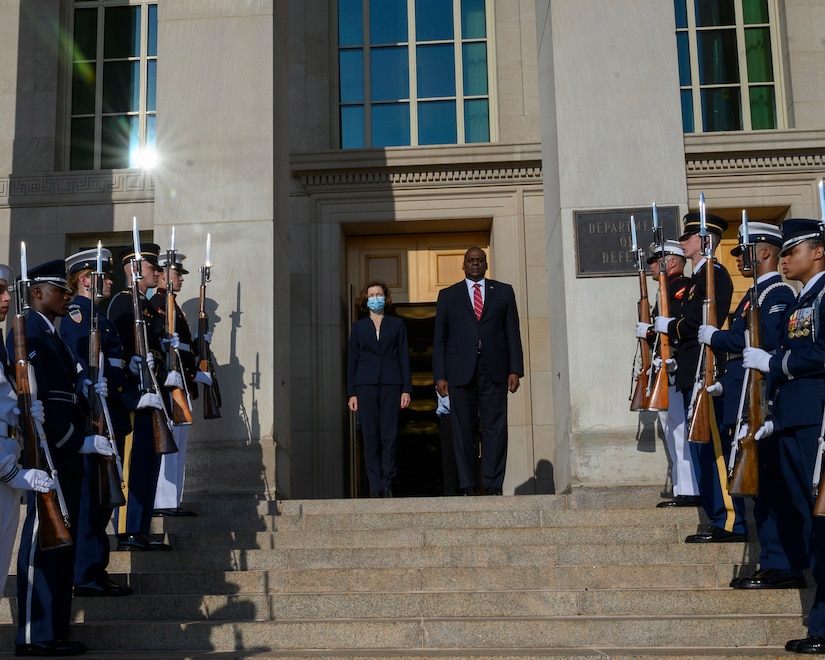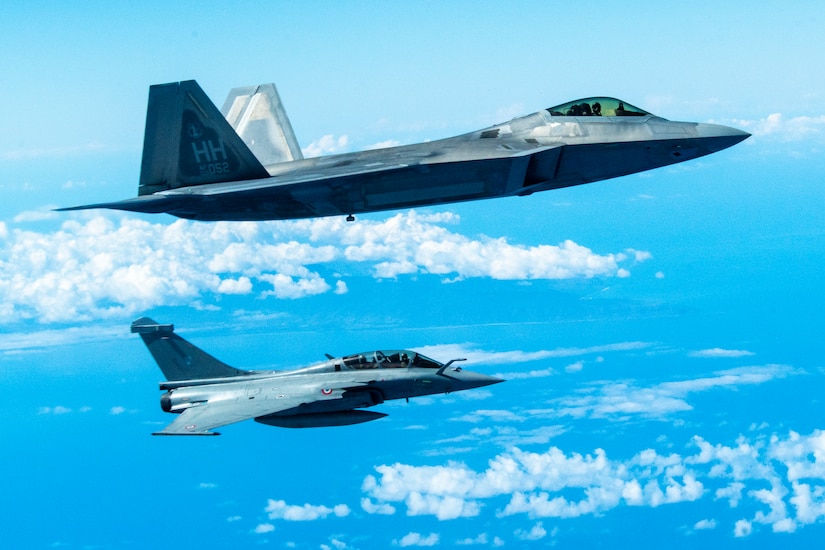July 9, 2021 | , DOD News

It is safe to say that without France, the United States would not have won independence in 1783. More than 200 years later, the two nations still work and fight together.
The two leaders also signed the Special Operations Forces roadmap, which enhances cooperation between French and U.S. special operators.
"Our cooperation in NATO, the Sahel and the Middle East are a key to our long-standing partnership, which is grounded in common strategic interests, our shared understanding of the importance of diplomacy and a powerful interest in preserving the international rules-based order," Austin said at the beginning of the meeting.
The meeting follows the NATO Summit and the two leaders discussed the ways the two nations will work together in NATO and bilaterally. The challenge from China was among the topics of discussion. "Today, as you well know, some of our competitors are working to undermine the stable and open order that we both support," Austin said. "So in the Indo-Pacific in particular, France is an ideal partner for the United States as we work to bolster our shared interests in the region.
Russian challenges in Europe and elsewhere also concern both nations and Austin promised the United States would continue to consult with France on this issue and more.
France is a bulwark in West Africa, and especially the Sahel region. Austin and Parly spoke about working with coalition forces from Burkina Faso, Chad, Mali, Mauritania and Niger to bring peace and security to the region. "The United States is proud to support our French and African partners," he said.
French and American service members worked shoulder-to-shoulder in Afghanistan and Austin praised the French contributions. "We thank the French people and the French military who served bravely alongside us for the last 20 years," he said. "And now it's time for us to end that war, and we appreciate the coordination we've had as together, we and our NATO allies have begun to transition to a new relationship with our Afghan partners."

But the allies are looking to the future. After the meeting Austin and Parly went to Fort Meade, Md., to visit U.S. Cyber Command. "I know you have also made cybersecurity a top priority, and that France has developed a cybersecurity strategy to mitigate risk and increase its capabilities," the secretary said. "Our countries have a strong shared interest in protecting our critical infrastructure and that of our allies, including cyber infrastructure, and that's a foundation for our future cooperation in the area of technological infrastructure more broadly."
Parly wants the two nations to build on the very robust military-to-military relationship. "Our cooperation is already very strong and deep, especially in the field of operations, and we want to seize every opportunity to strengthen it," she said. "Intelligence, space and cyber are also domains where we cooperate more and more."
Parly specifically thanked Austin for American support in the Sahel. "Your support will continue to be needed in the fight against terrorism and we are very grateful for it," she said.
"France and the United States are known to be the oldest allies," the minister said. "These are not just pretty words; they reflect something real. We are allies in words and deeds."








No comments:
Post a Comment